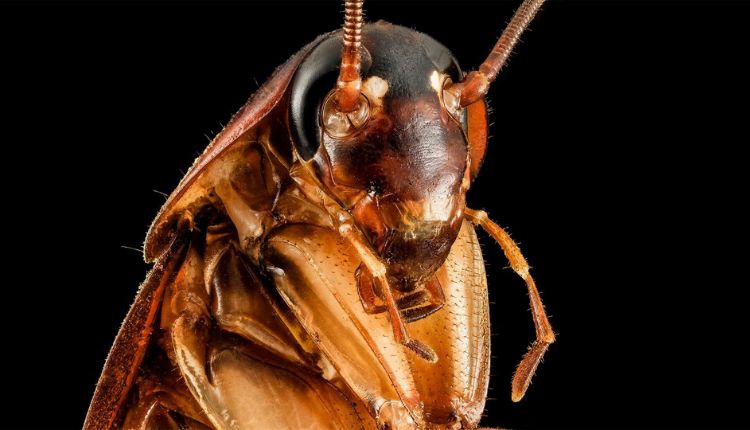Pest infestations can be more than just a nuisance; they often trigger significant fear and anxiety in individuals. The thought of insects, rodents, or other pests invading one’s personal space can lead to feelings of helplessness and distress. Understanding the psychological impact of these infestations is crucial for effective management and recovery Psychology.
In Abbotsford, pest control services play a vital role in not only eliminating pests but also alleviating the associated emotional turmoil. This article delves into the psychological effects of pest infestations and offers insights into how professional Abbotsford pest control companies like Seaside Pest Control can help mitigate these issues.
Psychological Impact of Pest Infestations
1. Fear and Phobias
Pest infestations can trigger intense fear and phobias in many individuals. The mere sight of pests such as spiders, cockroaches, or rodents can cause immediate panic and discomfort. This fear is often rooted in evolutionary instincts where humans learned to avoid potentially harmful creatures. For some, these fears develop into full-blown phobias, characterized by an irrational and overwhelming Psychology fear of pests that can disrupt daily life. To successfully manage these concerns, one must first be aware of them.
2. Anxiety and Stress
Beyond immediate fear, pest infestations often lead to chronic anxiety and stress. The uncertainty of not knowing when or where pests might appear can create a constant state of vigilance and tension. This heightened state of alertness can affect sleep patterns, concentration, and overall peace of mind. People may find themselves constantly checking for signs of pests, leading to a significant Psychology decrease in their quality of life. Understanding the sources of anxiety can help in developing strategies to cope with it.
3. Impact on Mental Health and Well-being
The mental health implications of pest infestations extend beyond fear and anxiety. Prolonged exposure to pests and the stress associated with infestations can lead to more severe mental health issues, including depression and feelings of hopelessness. The embarrassment and stigma of having a pest problem can also lead to social isolation and decreased self-esteem. Addressing these mental health impacts requires a comprehensive approach that includes both psychological support and effective pest control measures.
Role of Professional Pest Control in Alleviating Anxiety
1. Clear Communication and Reassurance
One of the primary ways professional pest control services can alleviate anxiety is through clear communication and reassurance. Experts in Abbotsford pest Psychology control are trained to educate clients about the nature of their pest problem, the steps involved in treatment, and what to expect during the process. This transparency helps to demystify the situation, reducing fear and providing a sense of control over the situation. Knowing that professionals are handling the problem can significantly reduce stress.
2. Thorough Inspections and Effective Treatments
Professional pest control services Psychology conduct thorough inspections to identify the extent of the infestation and the types of pests involved. This detailed approach ensures that all potential hiding spots and sources of infestation are addressed. Effective treatments, tailored to the specific pest and infestation level, are then implemented. Knowing that the pest problem is being addressed comprehensively can greatly alleviate anxiety and contribute to a sense of security.
3. Follow-up and Ongoing Support
Follow-up and ongoing support are crucial components of professional pest control services. Regular check-ins and monitoring ensure that the infestation is fully resolved and help prevent future occurrences. This continued support provides reassurance to clients, knowing that their pest problem is being managed over the long term. The availability of ongoing assistance helps to maintain peace of mind and reduces the likelihood of anxiety resurfacing.
Tips for Preventing Pest-Related Anxiety
1. Regular Home Maintenance
Regular home maintenance is essential in preventing pest infestations and the anxiety they cause. Keeping a clean and clutter-free home reduces the likelihood of attracting pests. Simple actions like sealing cracks, fixing leaks, and ensuring proper food storage can make a significant difference. Maintaining cleanliness and order not only helps in pest prevention but also promotes a sense of control and reduces stress.
2. Creating a Pest Prevention Plan
Developing a comprehensive pest prevention plan is another effective way to manage anxiety related to infestations. This plan should include regular inspections, scheduled treatments, and preventive measures tailored to the specific needs of the home. Engaging with professional pest control services to create and implement this plan can provide an additional layer of security and peace of mind. Knowing that proactive Psychology steps are being taken to prevent infestations can significantly reduce anxiety.
3. Engaging with Professional Pest Control Services
Regular engagement with professional pest control services such as Seaside Pest Control is crucial for maintaining a pest-free home. These experts can provide valuable advice, perform regular inspections, and implement preventive treatments. Establishing a relationship with a trusted pest control provider ensures that any potential issues are addressed promptly and effectively. This ongoing Psychology partnership helps in maintaining a sense of control and reduces the likelihood of anxiety and Psychology stress.
Conclusion
Pest infestations can have profound psychological effects, including fear, and anxiety, and impacts on mental health and well-being. Understanding these Psychology effects is crucial for effective management and recovery. Professional pest control Vancouver BC services from Seaside Pest Control play a vital role in alleviating these anxieties through clear communication, thorough treatments, and ongoing support.
By implementing preventive measures and engaging with professionals, individuals can significantly reduce pest-related anxiety. Ensuring a pest-free environment is not just about physical health, but also about maintaining Psychology mental and emotional well-being through comprehensive pest control measures.


